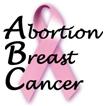Women's Organization Accuses MAMM of Misleading Public About Abortion-Breast Cancer Link
An international women's organization, whose purpose is to educate the public about the 27 out of 35 worldwide studies demonstrating that women who have abortions are at increased risk for breast cancer, accused MAMM magazine of misleading the public about the research today. Mrs. Karen Malec, president of the Coalition on Abortion/Breast Cancer, said "The link between induced abortion and breast cancer has been covered up for 44 years. It is a crime that women have not been informed of the existence of more than two dozen studies linking abortion with breast cancer. It is indefensible that a consumer magazine, supported by advertising revenue from pharmaceutical companies, misleads women about this life-saving knowledge. MAMM is in a position to know better. Cancer patients depend upon MAMM for accurate information, and they deserve better than this."
Dr. Janet Daling's 1994 study found an increased risk of 50% for the general population. It remains the only study specifically commissioned by the National Cancer Institute. 1
Dr. Daling is an abortion supporter, but she did not allow her ideology get in the way of science. She said, "I have three sisters with breast cancer and I resent people messing with the scientific data to further their own agenda, be they pro-choice or pro-life. I would have loved to have found no association between breast cancer and abortion, but our research is rock solid and our data is accurate." 2
Said Mrs. Malec, "MAMM used the smokescreens employed by the abortion industry. MAMM argued that the studies linking abortion with breast cancer are flawed because of a hypothetical phenomenon called 'recall bias.' This theory says that breast cancer patients are more likely than healthy women are to admit to having procured abortions. Several teams of scientists, including Dr. Daling's, have tested for this possibility, but none has ever found any credible evidence that it exists. 3
Mrs. Malec said, "It is both ironic and unethical that Daling's critic, Dr. Lynn Rosenberg of the Boston University School of Medicine would have editorialized that '[t]he overall results [of Daling's study]...are far from conclusive, and it is difficult to see how they will [be] informative to the public.' Dr. Rosenberg's own research demonstrates increased risk." 4
In fact, in sworn testimony as the expert witness for abortion providers in a case involving Florida's parental notification law in 1999, Rosenberg was asked,
"A woman who finds herself pregnant at age 15 will have a higher breast cancer risk if she chooses to abort that pregnancy than if she carries the pregnancy to term, correct?"
Rosenberg replied,
"Probably, yes." 5
MAMM identified the 1991 Lindefors-Harris study as having provided evidence of recall bias. MAMM informed its readers that "The study compared data from both registries and found, in fact, that healthy women were less likely to report abortions than women with breast cancer." 6
Three years ago this Swedish group had a letter published in the Journal of Epidemiology and Community Health and backed off its original claim of having found evidence of recall bias. 7 It seems that the Swedish team found itself in the preposterous position of having to explain why seven breast cancer patients reported they'd had abortions which the computer said they'd never had. Seven out of 26 of the patients in this group (the group which said they had had any abortions) supposedly lied and overreported their abortion histories, a difficult claim to believe. 8
Rather than providing evidence of recall bias, the Swedish researchers provided evidence that the use of a computer registry is not the ideal means for determining the occurrence of induced abortion.
The Brind-Penn State team was highly critical of the Meirik group's claim of over reporting. In a letter published in 1998 in the Journal of Epidemiology and Community Health, Brind identified serious errors in Meirik's study, and proved that that group had covered-up an abortion-breast cancer link in Norwegian women. 9 Family Health International funded the discredited Lindefors-Harris study. The organization funds studies promoting family planning services.
Mrs. Malec added, "Incredibly, MAMM suggested that the 1997 Melbye study, 'allowed most in the women's health movement a collective sigh of relief,' and suggested that the issue might 'be put to rest.' Isn't it irresponsible to suggest that one study can settle the issue? The Melbye study has been severely criticized for its errors by both the Brind-Penn State team and Senghas and Dolan." 10 "However, even Melbye reported within the body of the study that: '[w]ith each one-week increase in the gestational age of the fetus . . . there was a 3 percent increase in the risk of breast cancer.'" 11
"The United Kingdom's Royal College of Obstetricians and Gynecologists released guidelines to its abortion providers last year saying that the abortion-breast cancer research 'could not be disregarded.' Does MAMM, then, have the right to disregard the research?" 12
Medical experts already agree that abortion causes breast cancer in one of two ways: the later a woman has her first full term pregnancy (FFTP), the greater her risk for breast cancer is. "When a woman procures an abortion, she foregoes the protective effect of an earlier FFTP," commented Mrs. Malec. "Sadly, MAMM did not even tell their readers this much."
"The abortion industry's cover-up of this research is comparable to that of the tobacco industry, so it is comical that Vicki Saporta of the National Abortion Federation would suggest that groups like ours should redirect their efforts toward the additional breast cancer screening and treatment which is now required by women. That's comparable to the tobacco industry telling the anti-tobacco groups to stop warning about a tobacco-cancer link and to redirect their efforts toward lung cancer screening," said Mrs. Malec.
"It is unfortunate that MAMM sees this research as political issue, instead of a women's health issue," said Mrs. Malec. "This is why the information has been covered up for 44 years in the first place. MAMM has attempted to attach what it views as disparaging labels to the individuals who inform women of the existence of the studies by calling them 'religious conservatives' or 'pro-life.' We are proud to say that we are pro-life for women."
- 1. Janet R. Daling et al., "Risk of Breast Cancer Among Young Women: Relationship to Induced Abortion," 86 Journal of the National Cancer Institute; (1994);1584
- 2. L.A. Daily News, Sept., 1997
- 3. Ibid; Tang et al, Case-control differences in the reliability of reporting a history of induced abortion, Am J Epidemiol, 2000, 151:1139-43
- 4. Rosenberg et al. (1988) Am J Epidemiol 127:981-9
- 5. Rosenberg (1999) NE FL Women's Health v. State of FL, FL Circuit Ct, 2nd circ., videotape deposition of 11/18/99, pp. 77-8
- 6. March, 2001; p. 30
- 7. Meirik et al (1998) J Epidemiol Community Health 52:209
- 8. Lindefors-Harris BM, Eklund G, et al., Response bias in a case-control study: analysis utilizing comparative data concerning legal abortions from two independent Swedish studies. Am J Epidemiol. 1991; 134: 1003-1008.
- 9. Brind et al, J Epidemiol Community Health, 1998, 52:209-11
- 10. (1997)New Engl J Med 336:1834
- 11. Melbye et al. (1997) New Engl J Med 336:83
- 12. Evidence-based Guideline #7 (2000) RCOG Press, pp. 29-30

